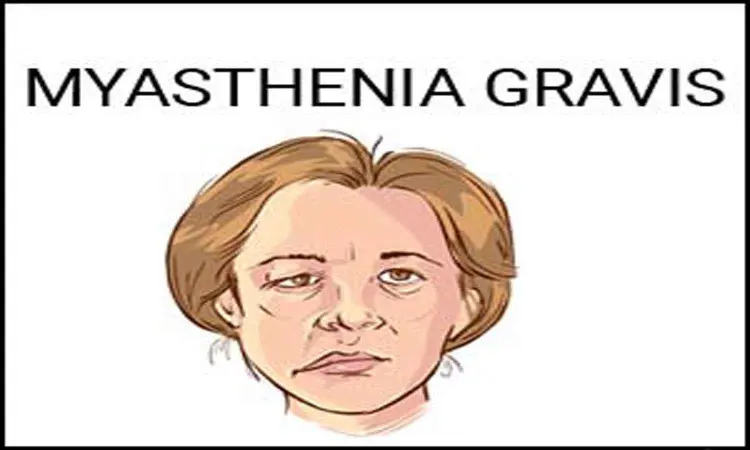- Home
- Medical news & Guidelines
- Anesthesiology
- Cardiology and CTVS
- Critical Care
- Dentistry
- Dermatology
- Diabetes and Endocrinology
- ENT
- Gastroenterology
- Medicine
- Nephrology
- Neurology
- Obstretics-Gynaecology
- Oncology
- Ophthalmology
- Orthopaedics
- Pediatrics-Neonatology
- Psychiatry
- Pulmonology
- Radiology
- Surgery
- Urology
- Laboratory Medicine
- Diet
- Nursing
- Paramedical
- Physiotherapy
- Health news
- Fact Check
- Bone Health Fact Check
- Brain Health Fact Check
- Cancer Related Fact Check
- Child Care Fact Check
- Dental and oral health fact check
- Diabetes and metabolic health fact check
- Diet and Nutrition Fact Check
- Eye and ENT Care Fact Check
- Fitness fact check
- Gut health fact check
- Heart health fact check
- Kidney health fact check
- Medical education fact check
- Men's health fact check
- Respiratory fact check
- Skin and hair care fact check
- Vaccine and Immunization fact check
- Women's health fact check
- AYUSH
- State News
- Andaman and Nicobar Islands
- Andhra Pradesh
- Arunachal Pradesh
- Assam
- Bihar
- Chandigarh
- Chattisgarh
- Dadra and Nagar Haveli
- Daman and Diu
- Delhi
- Goa
- Gujarat
- Haryana
- Himachal Pradesh
- Jammu & Kashmir
- Jharkhand
- Karnataka
- Kerala
- Ladakh
- Lakshadweep
- Madhya Pradesh
- Maharashtra
- Manipur
- Meghalaya
- Mizoram
- Nagaland
- Odisha
- Puducherry
- Punjab
- Rajasthan
- Sikkim
- Tamil Nadu
- Telangana
- Tripura
- Uttar Pradesh
- Uttrakhand
- West Bengal
- Medical Education
- Industry
IV immunoglobulin may not help reduce corticosteroid dose among patients with myasthenia gravis

In a new study conducted by Vera Brill, it was shown that the daily corticosteroids (CS) dose could not be decreased by caprylate/chromatography purified (IGIV-C) any more than a placebo could. These findings imply that the effects of IGIV-C and CS are not synergistic and may even involve distinct mechanisms. The findings of this study were published in Neurology Journal.
Neuromuscular junction dysfunction is a hallmark of the autoimmune illness myasthenia gravis (MG). In many cases, corticosteroids and intravenous immunoglobulin (IVIG) are used as treatments. This study looked at whether immune globulin (human), 10% caprylate/chromatography purified could help CS-dependent MG patients reduce their dose.
Patients with CS-dependent MG (MGFA class II-Iva; AChR+) received a loading dose of 2 g/kg IGIV-C over two days (maximum 80 g/day) or placebo at week 0 of this randomized, double-blind, placebo-controlled experiment (baseline). Through week 36, maintenance doses (1 g/kg IGIV-C or placebo) were given every three weeks. CS was reduced starting at week 9 and continued until week 36, barring a patient worsening. In patients who got worse, CS dosages were raised. If deterioration did not improve after six weeks or a second CS increase was necessary, patients were removed from the study. A 50% reduction in CS dose served as the primary effectiveness objective (at week 39). The study and follow-up involved evaluating secondary and safety endpoints (weeks 42 and 45).
The key findings of this study were:
1. The IGIV-C treatment (60.0% of patients) and placebo (63.3%) did not significantly differ in the primary goal ( 50% reduction in CS dose).
2. For secondary endpoints, there were no noteworthy variations. According to safety data, IGIV-C was well tolerated.
In conclusion, this trial shows Class II evidence that IVIG infusions do not increase the proportion of patients who achieve a 50% reduction in corticosteroid dose in comparison to placebo in adult patients with MG.
Reference:
Bril, V., Szczudlik, A., Vaitkus, A., Rozsa, C., Kostera-Pruszczyk, A., Hon, P., Bednarik, J., Tyblova, M., Köhler, W., Toomsoo, T., Nowak, R. J., Mozaffar, T., Freimer, M. L., Dimachkie, M. M., Distad, B. J., … Mondou, E. (2022). A randomized, double-blind, placebo-controlled trial of the corticosteroid-sparing effects of immunoglobulin in myasthenia gravis. Neurology, 10.1212/WNL.0000000000201501. https://doi.org/10.1212/WNL.0000000000201501
Neuroscience Masters graduate
Jacinthlyn Sylvia, a Neuroscience Master's graduate from Chennai has worked extensively in deciphering the neurobiology of cognition and motor control in aging. She also has spread-out exposure to Neurosurgery from her Bachelor’s. She is currently involved in active Neuro-Oncology research. She is an upcoming neuroscientist with a fiery passion for writing. Her news cover at Medical Dialogues feature recent discoveries and updates from the healthcare and biomedical research fields. She can be reached at editorial@medicaldialogues.in
Dr Kamal Kant Kohli-MBBS, DTCD- a chest specialist with more than 30 years of practice and a flair for writing clinical articles, Dr Kamal Kant Kohli joined Medical Dialogues as a Chief Editor of Medical News. Besides writing articles, as an editor, he proofreads and verifies all the medical content published on Medical Dialogues including those coming from journals, studies,medical conferences,guidelines etc. Email: drkohli@medicaldialogues.in. Contact no. 011-43720751


